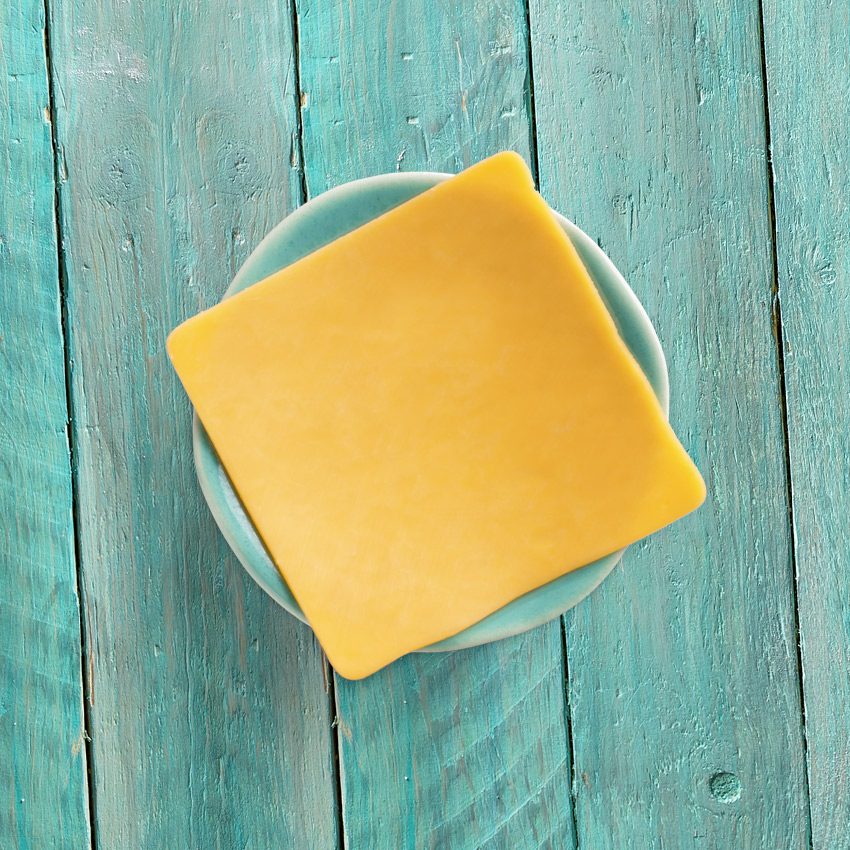Unpacking 'ch': Discover Its Many Meanings Today
Detail Author:
- Name : Julia Bruen
- Username : mbartoletti
- Email : hokon@mcdermott.net
- Birthdate : 1997-10-16
- Address : 5607 Francis Terrace Suite 903 Rosenbaummouth, AZ 99281
- Phone : +1-832-299-3342
- Company : Kassulke Ltd
- Job : Cement Mason and Concrete Finisher
- Bio : Qui sit magni mollitia consectetur. Sit qui hic iure saepe nihil distinctio. Ut nihil consequatur animi est facere. Cum aut fuga consequuntur repudiandae autem quia.
Socials
twitter:
- url : https://twitter.com/ndubuque
- username : ndubuque
- bio : Aut ad id pariatur quasi. Rerum consequuntur sunt perferendis occaecati aliquam consequuntur ipsum. In enim rerum repudiandae architecto et atque.
- followers : 1495
- following : 2738
tiktok:
- url : https://tiktok.com/@ndubuque
- username : ndubuque
- bio : Possimus et ipsam est reiciendis magnam.
- followers : 6199
- following : 1283
Have you ever stumbled upon “ch” and wondered just what it could mean? It's a funny little combination of letters, isn't it? You see it here, you see it there, and each time, it seems to carry a completely different idea. That, you know, can be a bit confusing for anyone trying to figure things out. So, what’s the real story behind this common pairing? It's pretty interesting, actually.
It's true, “ch” pops up in so many places, sometimes as a quick way to shorten a name, other times as a sound in words, and even in some rather specialized areas like mathematics or online communities. You might, for instance, see it representing a whole country, or perhaps, it could be part of a playful online trend. There's a lot to unpack, and we'll certainly get to all of it.
Today, we're going to take a good look at the various faces of “ch,” exploring its different roles and what it tells us about how we use language and codes every single day. We'll go through its surprising appearances, from official country names to casual internet culture, and even a little bit of what it means in the world of numbers. It's quite a varied collection, as a matter of fact.
Table of Contents
- ‘ch’ as a Country Code: Switzerland
- ‘ch’ in the Online World: Countryhumans and Forums
- ‘ch’ in Language: Sounds and Slang
- ‘ch’ in Technology and Products
- ‘ch’ in Mathematics: Hyperbolic Functions
- Frequently Asked Questions about ‘ch’
‘ch’ as a Country Code: Switzerland
When you see “CH” written somewhere, especially on a car sticker or in a web address, it very often points to a specific country. That country is Switzerland, a place known for its mountains and clocks, and you know, chocolate. The letters “CH” come from the Latin name for Switzerland, which is “Confoederatio Helvetica.” So, it’s not from the English name, Switzerland, but from a much older, more formal title. This is quite a common thing for country codes, actually, where the abbreviation doesn't always match the English name.
It’s pretty interesting how many countries have their own two-letter short forms, isn't it? For instance, “CZ” is the short way to say Czech Republic, and “SI” stands for Slovenia. Then there’s “PL” for Poland, and “HU” for Hungary. You also have “NL” for the Netherlands, and that’s just a few examples. These short forms help people quickly identify places, especially in international settings, which is really helpful.
Looking at other parts of Europe, you find more of these codes, too. “AT” is Austria, and “BE” is Belgium. “BF” stands for Burkina-Faso, and “BG” is Bulgaria. You might also see “AU” for Australia, which is far away, or “AZ” for Azerbaijan. Even places like Barbados get “BB” and Bangladesh is “BD.” Each one is a quick little tag for a whole nation, making global communication a bit easier, in a way.
So, when you spot “CH,” you can be pretty sure someone is talking about Switzerland. It’s a widely accepted and official way to refer to the country, used in everything from travel documents to internet domains. This system, you know, helps keep things clear when there are so many different countries in the world. It’s a simple code that tells a big story, which is kind of neat.
‘ch’ in the Online World: Countryhumans and Forums
Beyond official country codes, “ch” also takes on a very different meaning in certain online groups. One really popular example is "Countryhumans," a community that started on platforms like YouTube. Here, “ch” is a short way to say "Countryhumans," and it refers to a whole creative world where countries are turned into people. It's a very unique kind of art and storytelling, actually, where each nation gets its own personality and look.
In this Countryhumans world, the characters are often drawn as figures with country flags for heads. They’re sometimes called “ball-headed people” because of this look. While there isn't one single way everyone draws them, there are some ideas about what each country character is like that many people in the group agree on. It's a creative space where fans get to explore history and culture through their own characters, which is kind of cool, isn't it?
Then, there's another online place where “ch” appears, and that's in the name of a big Japanese internet forum. This forum was originally known as 2ch. However, it later split into two main sites: 2ch.sc and 5ch.net. If you're looking for the one that really kept the spirit and activity of the original, 5ch.net is pretty much the go-to place now. It’s a very active spot for discussions on all sorts of topics, which is rather interesting.
Speaking of online communities, “ch” also connects to Zhihu, which is a major Chinese online platform. Zhihu is a well-known place for questions and answers, and it's also where many people go to share original content. It started back in January 2011, and its main idea is to help people share their knowledge, experiences, and thoughts, so everyone can find answers to their questions. It’s a very big site for Chinese internet users, as a matter of fact. You can learn more about online communities on our site, too.
‘ch’ in Language: Sounds and Slang
When we talk about language, the letters “ch” can make a few different sounds, which is kind of neat. One common sound is like the “ch” in “chair” or “cheese.” But, you know, “ch” can also make a “k” sound, and that’s pretty common too. Think about words like “chemical,” “chemistry,” and “chemist.” You hear that “k” sound, don't you? It's the same in “Christmas,” “school,” “headache,” and “stomach.” So, it’s not always the same sound, which can sometimes make learning English a bit tricky, apparently.
There’s a little saying that can help you remember some of these words with the “k” sound: “The chemist teaching.” That phrase, you see, has “chemist” in it, which helps you recall that particular sound. It’s a simple trick, but it really works for remembering those specific words. So, next time you come across “ch,” just remember it might surprise you with its sound, which is just a little bit different.
Unfortunately, the sound “ch” has also been used in a hurtful way. Some English speakers, for instance, use “ching chong” as a mean and disrespectful term for people of Chinese background. This phrase tries to make fun of how Chinese sounds, and it's really not okay. It’s a bit like how some people might use “Simida” to mock Korean speakers, which is also a very unkind thing to do. These kinds of terms are meant to belittle and stereotype, and they really have no place in respectful conversation.
It’s interesting to think about how sounds that are very common in one language, like “ch” and “ng” in Chinese, can be picked up and used in a negative way by speakers of other languages. These sounds are just part of how a language works, and they don't mean anything bad on their own. But, you know, when people use them to insult others, it becomes a problem. Understanding this can help us be more thoughtful about the words we choose, which is pretty important, actually.
‘ch’ in Technology and Products
In the world of gadgets, especially phones, you might see “CH” pop up in model numbers. For example, if you're looking at an iPhone, you might see “CH/A,” “LL/A,” or “ZP/A.” These letters actually tell you where the phone was originally sold. “CH/A” means it’s a version for mainland China. “LL/A” is for phones sold in the United States, and “ZP/A” is for Hong Kong models. It’s a way for the company to keep track of where their products go, which is quite clever.
Interestingly, there’s no real difference in how these phones work, no matter where they’re from. The parts inside are all the same. The prices, however, can be different, with mainland China versions often costing the most, then US versions, and Hong Kong ones being a bit less expensive. The main differences you’ll find are in the instruction booklets – China models usually have Chinese ones, while US and Hong Kong ones have English. But, you know, you can always get a Chinese version online if you need it. The power cords might also be different, but that’s an easy fix with an international adapter, so it’s not a big deal.
Beyond phones, “CH” also appears in the world of sports equipment, specifically with badminton rackets. You might see codes like “SP,” “JP,” or “TW” on rackets. “SP” often refers to rackets meant for Indonesia or Hong Kong, or even Singapore. These are, you know, quite common in the market because of their price and how easy they are to find. “JP” usually means the racket is for the Japanese market, and these are often considered to be made with really good materials and perform very well, which is why they sometimes cost more, apparently.
It’s kind of funny, but even rackets with the same serial numbers can feel a bit different, and that’s before you even think about things like the grip tape or how tight the strings are. So, while some people might say a “JP” racket is better than a “TW” (Taiwan) one, it’s really a matter of personal preference. What feels good to one player might not feel the same to another. In the end, many players find there’s not a huge difference in how they play, which is pretty much the main thing, isn't it?
‘ch’ in Mathematics: Hyperbolic Functions
Moving into the world of numbers and equations, “ch” takes on a very specific meaning in mathematics. Here, “ch” and “sh” are symbols used to represent what are called hyperbolic functions. These are special kinds of mathematical operations, you know, that come up in some advanced calculations. So, if you see them in a math book, it’s not about countries or phones at all, which is rather surprising.
More precisely, “ch” is a short way of writing “cosh,” which stands for the hyperbolic cosine function. And “sh” means “sinh,” which is the hyperbolic sine function. These functions are a bit like the regular cosine and sine functions you might remember from geometry, but they work with a different kind of curve called a hyperbola. They are, you know, pretty important in fields like engineering and physics, where they help describe certain shapes and behaviors.
For example, the hyperbolic cosine function, “chz,” can be written as coshz, and its definition is (e^z + e^(-z))/2. Here, ‘e’ is a special number in math, kind of like pi. The ‘z’ represents a variable, which could be a number or even something more complex. Similarly, the hyperbolic sine function, y=shx, is another basic function in this group. These might seem a bit abstract, but they are very useful tools for solving certain types of problems, as a matter of fact.
So, when you see “ch” or “sh” in a math problem, you can be pretty sure it’s talking about these specific hyperbolic functions. They are part of a broader set of mathematical tools that help us describe and understand the world around us. It’s a good example of how the same letters can mean totally different things depending on the context, which is pretty much the theme of “ch,” isn't it? You can learn more about mathematical functions on this page.
Frequently Asked Questions about ‘ch’
What does CH stand for in a general sense?
Well, “CH” can stand for quite a few things, actually. Most commonly, it's the official two-letter code for Switzerland, coming from its Latin name, Confoederatio Helvetica. But, you know, it also shows up in online communities like “Countryhumans,” where it’s a short way to refer to the characters. It even appears in product codes for things like iPhones, telling you where they were sold. So, its meaning really depends on where you see it, which is kind of interesting.
Is CH always related to Switzerland?
Not always, no. While “CH” is definitely the widely recognized abbreviation for Switzerland in many official contexts, like country codes for international use, it has other meanings too. For instance, in some online groups, “CH” means “Countryhumans,” which is a whole different thing entirely. And, you know, it can also be part of a model number on an electronic device, indicating its region. So, while Switzerland is a big one, it's not the only meaning, as a matter of fact.
How does the sound of 'ch' change in English words?
The sound of “ch” in English can be a bit tricky, which is kind of fun. Most often, it makes the sound you hear in “chair” or “chocolate.” But, you know, it can also make a “k” sound, like in words such as “chemical,” “Christmas,” or “school.” Sometimes, it even sounds like “sh,” as in “machine.” So, it’s not just one sound, and you often have to learn which sound it makes for each word, which can be a bit of a challenge for language learners, apparently.


